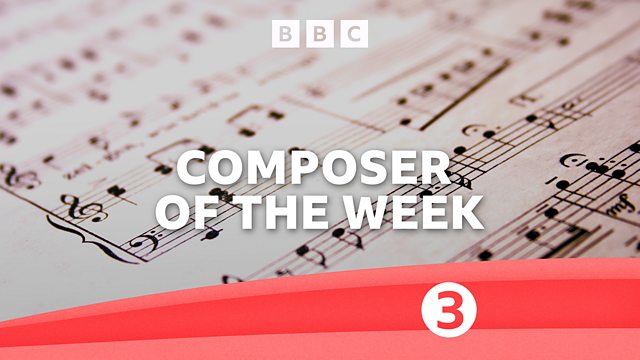
Arrival in America
Donald Macleod finds out what Americans made of this famous composer, newly arrived from Bohemia.
Donald Macleod finds out what Americans made of this famous composer, newly arrived from Bohemia.
Antonín Dvořák became the first Czech composer to achieve global fame. His gift for transforming the folk styles of his native Bohemia into richly romantic classical music won him admirers far beyond his homeland. Consequently, Dvořák was approached to leave Europe and serve as director of the newly established National Conservatory of Music in America. His sponsors hoped he would help foster a new and distinctive American musical style, less reliant upon Germanic traditions. During his time in America, Dvořák composed many of his most celebrated works, including his Ninth Symphony and his Cello Concerto. This week, Donald Macleod focuses on Dvořák’s American years and uncovers what he achieved there.
Dvořák was in awe of the metropolis when he and his family first arrived in New York. They were greeted at the quayside by a delegation from the Conservatoire and were soon whisked off to their new apartment at the Clarendon Hotel where a Steinway piano had been delivered for his use. He noted that everything was clean and expensive. Dvořák was also taken with the lack of divisions between those with or without wealth; he was mightily impressed that talented students were given entry to the Conservatoire, regardless of financial or racial background. Dvořák was greatly taken with the cultural scene in New York too. His own grand inaugural concert took place towards the end of 1892 at a packed Carnegie Hall, where his Te Deum was performed to huge acclaim.
Symphony No 8 in G, Op 88 (excerpt)
Oslo Philharmonic Orchestra
Mariss Jansons, conductor
Requiem, Op 89 (Confutatis Maledictis)
Prague Philharmonic Choir
Czech Philharmonic Orchestra
Jakub Hrůša, conductor
Symphony No 6 in D, Op 60 (Scherzo: Furiant)
Czech Philharmonic Orchestra
Jiří Bĕlohlávek, conductor
Symphony No 8 in G, Op 88 (Allegretto grazioso – Molto vivace)
Oslo Philharmonic Orchestra
Mariss Jansons, conductor
Te Deum, Op 102
Kateřina Knĕžíková, soprano
Svatopluk Sem, baritone
Prague Philharmonic Choir
Czech Philharmonic Orchestra
Jakub Hrůša, conductor
Harry T. Burleigh
Southland Sketches (excerpt)
Arnold Steinhardt, violin
Victor Steinhardt, piano
Produced by Luke Whitlock
Last on
More episodes
Music Played
-
![]()
Antonín Dvořák
Symphony No 8 in G major, Op 88 (3rd mvt)
Orchestra: Oslo Philharmonic Orchestra. Conductor: Mariss Jansons.- Warner : 5868732.
- WARNER.
- 7.
-
![]()
Antonín Dvořák
Requiem, Op 89 (Confutatis Maledictis)
Singer: Christiane Libor. Singer: Ewa Wolak. Singer: Daniel Kirch. Singer: Janusz Monarcha. Choir: Warsaw Philharmonic Chorus. Orchestra: Warsaw Philharmonic Orchestra. Conductor: Antoni Wit.- NAXOS : 8.572874-75.
- NAXOS.
- 1.
-
![]()
Antonín Dvořák
Symphony no.6 in D major, Op.60 (3rd mvt)
Orchestra: Czech Philharmonic. Conductor: Jiří Bělohlávek.- CHANDOS : CHAN-9170.
- CHANDOS.
- 4.
-
![]()
Antonín Dvořák
Symphony No 8 in G major, Op 88 (3rd mvt)
Orchestra: Oslo Philharmonic Orchestra. Conductor: Mariss Jansons.- Warner : 5868732.
- WARNER.
- 7.
-
![]()
Antonín Dvořák
Te Deum, Op 103
Singer: Kateřina Kněžíková. Singer: Svatopluk Sem. Choir: Prague Philharmonic Choir. Orchestra: Czech Philharmonic. Conductor: Jakub Hrůša.- Decca: 4850509.
- DECCA.
- 24.
-
![]()
Harry Burleigh
Southland Sketches
Performer: Arnold Steinhardt. Performer: Victor Steinahardt.- Naxos : 8.-559235.
- NAXOS.
- 17.
Broadcast
- Tue 14 Jun 2022 12:00BBC Radio 3








